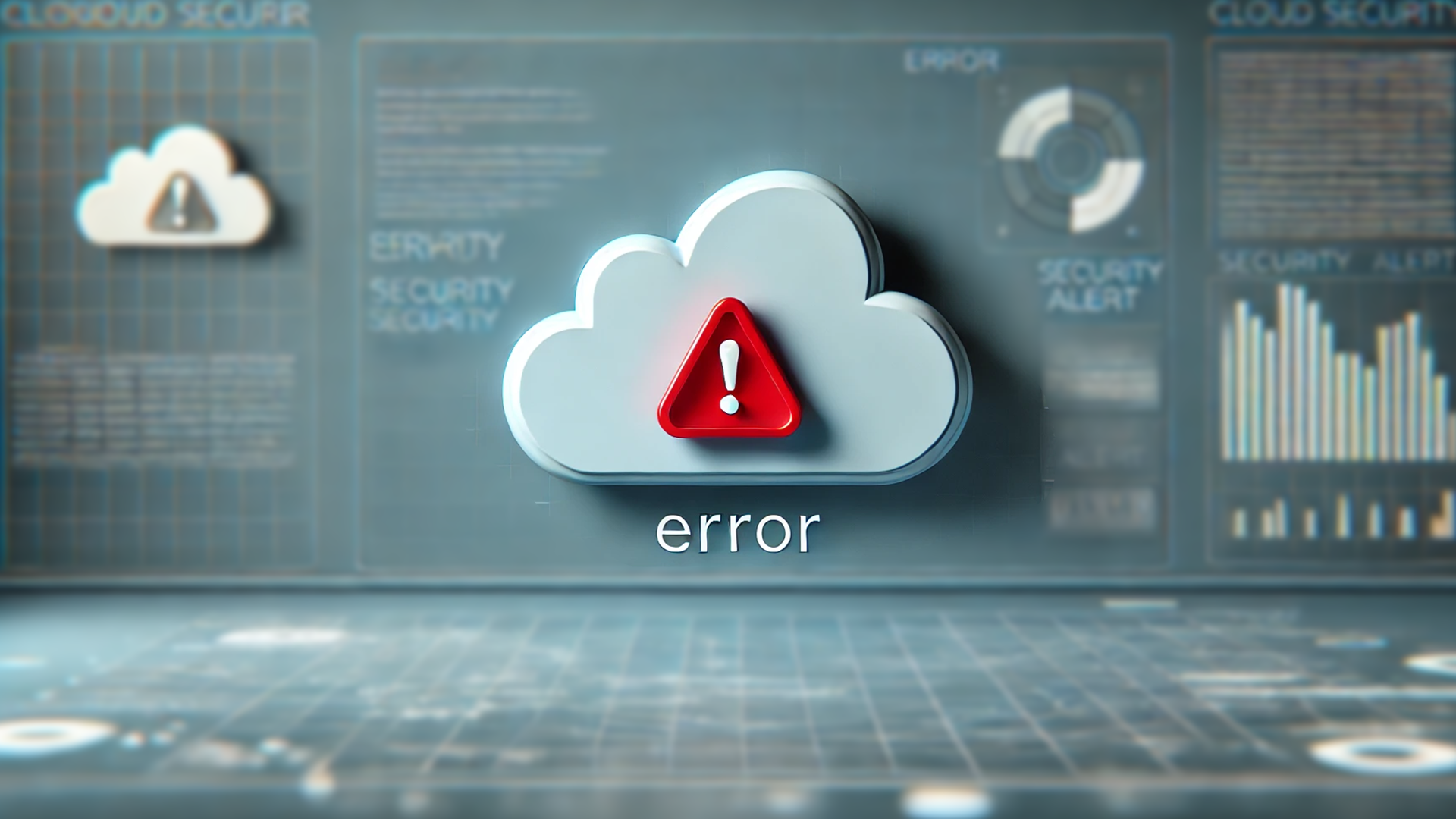
Thank you
Our team of industry domain experts combined with our guaranteed SLAs, our world class technology .


Get Immediate Help
In today's digital landscape, safeguarding data in the cloud is no longer just about meeting compliance regulations. While compliance plays a vital role, there’s a growing need to explore cloud data protection solutions from a broader perspective—one that prioritises practical, actionable measures to secure data, prevent breaches, and foster resilience. In this blog, we’ll take a deep dive into the key aspects of cloud data protection, including what it entails, why it’s essential beyond compliance, and practical solutions for organisations striving to protect sensitive data.

Cloud data protection solutions encompass a range of tools, policies, and best practices aimed at securing sensitive information stored, processed, or shared in cloud environments. With cloud adoption accelerating, organisations are increasingly reliant on these solutions to prevent unauthorised access, protect against cyber threats, and ensure business continuity. Beyond the fundamentals of compliance, cloud data protection requires strategies like cloud backup and disaster recovery, secure cloud infrastructure, data encryption, and insider threat detection.

Here’s a closer look at some practical considerations for implementing cloud data protection solutions that extend beyond compliance:
1. Cloud Backup and Disaster Recovery
Ensuring that your data is backed up and easily recoverable is crucial. Cloud backup and disaster recovery solutions provide automated, periodic data backups and rapid restoration capabilities, which help reduce downtime in case of a breach or loss. With cloud data growing exponentially, automated backup and data recovery solutions are no longer optional but essential. Moreover, data redundancy, off-site storage, and timely backups play a significant role in securing information assets in unpredictable scenarios.
2. Data Security Risk Assessment and Management
Data security risk assessment is foundational in understanding vulnerabilities and formulating effective protection strategies. In cloud environments, this involves examining access control settings, understanding the cloud provider’s security measures, and testing cloud data protection solutions for any gaps. Risk management in cloud computing also includes monitoring access patterns for insider threats and performing regular vulnerability scans to address potential weak points in real-time.
3. Multi-Factor Authentication (MFA) Solutions
Ensuring secure access to cloud systems is essential, especially with the flexibility and accessibility of cloud environments. Implementing multi-factor authentication (MFA) provides an added layer of security by requiring users to authenticate through two or more factors. Whether using biometrics, tokens, or SMS codes, MFA reduces the likelihood of unauthorised access by strengthening user identity verification. This can be particularly useful in protecting sensitive data in shared environments.
4. Insider Threat Detection and Management
One often overlooked aspect of cloud data protection is managing insider threats. These threats could come from employees, contractors, or third-party vendors with access to the cloud infrastructure. Insider threat detection tools monitor user activities and flag suspicious behaviours, such as unusual access times or large data transfers, which could indicate potential malicious intent. By using these solutions, organisations can enhance trust within their teams while mitigating risks from within.
5. Cloud Security Frameworks and Best Practices
Developing a structured cloud security framework ensures that the company’s security policies, tools, and processes align with current best practices. Frameworks, such as those provided by the NIST (National Institute of Standards and Technology) or ISO, offer guidelines that help in building secure cloud environments. These frameworks highlight essential areas like cloud API security, data encryption, secure access, and incident response protocols.
6. Data Encryption Solutions
Encrypting data stored in the cloud ensures that sensitive information remains unreadable to unauthorised users. Cloud data encryption solutions protect both data at rest and data in transit, using robust encryption protocols. Many organisations also choose to manage encryption keys themselves, which is referred to as Bring Your Own Key (BYOK), giving them complete control over access to encrypted data.
7. Network Segmentation and Secure Access Controls
Network segmentation divides the cloud environment into isolated sections, each with its own security protocols and access rules. This prevents cyber attackers from freely moving across systems, even if they breach one area. By implementing access control policies, organisations can limit user privileges based on job roles, reducing the risk of accidental or malicious data exposure.

Despite the importance of data protection, organisations often face significant challenges when implementing these solutions:
- Complex Compliance Requirements: Organisations may need to comply with multiple regulations across regions. Balancing regulatory compliance and cloud data protection requirements can be challenging, especially with limited resources.
- Increased Costs and Resource Allocation: Cloud data protection solutions, such as advanced encryption, backup solutions, and insider threat detection, come with added costs. Financial constraints may limit smaller businesses from implementing a full suite of cloud data protection solutions.
- Growing Sophistication of Cyber Threats: Cyber threats are constantly evolving, making it difficult to keep up with the latest protection mechanisms. What worked a year ago might not be sufficient against today’s threats, which can include phishing, malware, ransomware, and advanced persistent threats.
- Data Complexity in Hybrid and Multi-Cloud Environments: Many organisations operate in hybrid or multi-cloud environments, which makes data protection more challenging. Consistency across cloud environments is vital, but different platforms may have varying security features, leading to potential vulnerabilities.
Microminder CS offers a wide range of cloud data protection solutions to address these challenges. With services tailored to your unique needs, our team can provide expert support in the following areas:
1. Cloud Penetration Testing Solutions
This service helps organisations identify and remediate vulnerabilities specific to their cloud infrastructure. By performing cloud penetration tests, Microminder CS can detect potential security gaps, allowing the organisation to proactively address weaknesses before cyber attackers exploit them. This service is essential for maintaining a robust security posture in cloud environments.
2. Data Encryption and Backup Solutions
Encryption is fundamental for protecting data both in transit and at rest. Microminder CS’s data encryption solutions ensure that even if a breach occurs, the data remains unreadable to unauthorised parties. Backup solutions, on the other hand, secure data recovery capabilities, ensuring business continuity in case of accidental loss or malicious attacks.
3. Insider Threat Detection and Behavioural Monitoring
Microminder CS’s insider threat detection service monitors user behaviour, identifying any unusual or suspicious activities that could indicate an insider threat. This service is vital for organisations concerned with preventing unauthorised data access or data leakage from within the organisation, thus protecting sensitive information from internal threats.
4. Cloud Security Posture Management (CSPM)
CSPM ensures that cloud environments remain secure and compliant with industry regulations. This service continuously monitors cloud configurations, identifies any potential security misconfigurations, and ensures compliance with security standards. CSPM is especially beneficial for organisations navigating complex multi-cloud or hybrid environments.
5. Multi-Factor Authentication (MFA) Solutions
MFA adds an extra layer of security by requiring additional verification beyond a password. Microminder CS’s MFA solutions reduce the risk of unauthorised access to sensitive data, making it harder for cybercriminals to breach accounts even if they have access to the primary password.
6. Threat Intelligence and Hunting Services
This service provides organisations with valuable insights into emerging cyber threats, allowing them to take a proactive stance on data protection. Threat intelligence can identify and counter threats in real time, keeping cloud data safe from sophisticated and rapidly evolving cyberattack methods.
7. Cloud Access Security Broker (CASB) Solutions
CASB solutions help organisations enforce security policies for cloud access, allowing them to control and monitor data flow to and from cloud applications. It ensures that employees can access cloud services securely and that sensitive data is protected from unauthorised access.
8. Compliance and Regulatory Advisory Services
Given the complex regulatory landscape, Microminder CS’s advisory services assist organisations in understanding and adhering to necessary compliance standards, including GDPR, HIPAA, and others specific to their region. This service helps organisations align their security protocols with regulatory requirements, ensuring that data protection practices meet all compliance standards.
Protecting data in the cloud goes far beyond merely meeting compliance requirements. With the constantly evolving cyber landscape, taking a proactive and comprehensive approach to cloud data protection is essential for maintaining business resilience, safeguarding sensitive information, and fostering customer trust. By implementing practical solutions like cloud backup, encryption, multi-factor authentication, and insider threat detection, organisations can ensure their data is not only compliant but robustly protected against both external and internal threats.
Microminder CS is here to support you with cloud data protection strategies that prioritise both security and compliance. Our tailored solutions offer the peace of mind you need in a complex and high-stakes digital environment. Contact us to learn how we can help you secure your cloud data and elevate your security posture beyond compliance.
Don’t Let Cyber Attacks Ruin Your Business
Call
UK: +44 (0)20 3336 7200
KSA: +966 1351 81844
UAE: +971 454 01252
Contents
To keep up with innovation in IT & OT security, subscribe to our newsletter
Recent Posts
Penetration Testing | 10/11/2025
Cloud Security | 07/11/2025
Cybersecurity | 06/11/2025
What is cloud data protection, and why is it important?
Cloud data protection encompasses a variety of practices and technologies to secure sensitive data stored or processed in cloud environments. It’s essential for preventing data breaches, ensuring privacy, and maintaining compliance with regulations.How does cloud backup and disaster recovery work?
Cloud backup and disaster recovery involve creating secure copies of data in the cloud, which can be restored in the event of data loss or cyber incidents, helping organisations minimise downtime and data loss.What is the difference between data security and data privacy?
Data security focuses on protecting data from breaches or unauthorised access, while data privacy involves managing and regulating how data is collected, shared, and used, in compliance with privacy laws.Why is multi-factor authentication (MFA) essential for cloud security?
MFA adds an extra layer of security by requiring users to provide multiple forms of verification, making it more difficult for unauthorised users to access sensitive data in the cloud.How can organisations identify insider threats in cloud environments?
Using insider threat detection tools, organisations can monitor and analyse user activity, identifying unusual patterns that may indicate malicious intent or unauthorised access.